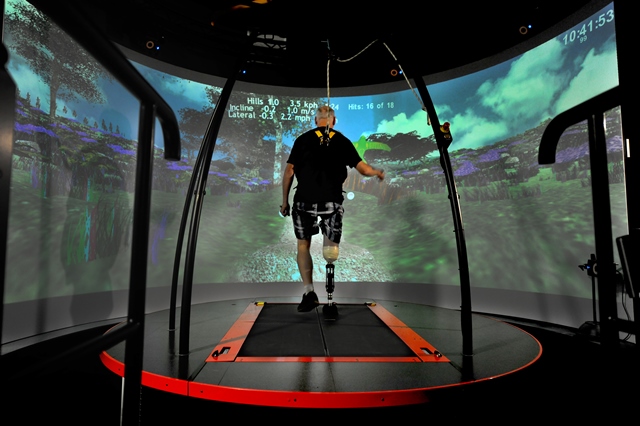CAREN- Virtual reality research gives Amputees balance.
EDMONTON — See how amputees learning to walk with a prosthetic leg are regaining the skills to do so thanks to virtual-reality research being conducted by a University of Alberta scientist at the Glenrose Rehabilitation Hospital.
Through sessions on the CAREN (Computer-Assisted Rehabilitation Environment) — the only clinical virtual reality simulator of its kind in Western Canada — patients at this Alberta Health Services (AHS) facility are getting care specific to their challenges as they help U of A researchers to devise new approaches to therapy for this population.
“We’re looking at what a person with a single prosthesis usually does when they’re thrown off-balance,” says Dr. Jacqueline Hebert, Medical Lead, Adult Amputee Program at the Glenrose as well as associate professor, Division of Physical Medicine and Rehab in the Faculty of Medicine & Dentistry. “On the CAREN, we can actually study the biomechanics of how they’re walking, what their balance reactions are, then look at that and help them train better for the real world.”
Available for interview will be: Dr. Hebert and a patient who is participating in the study.
event: 587



